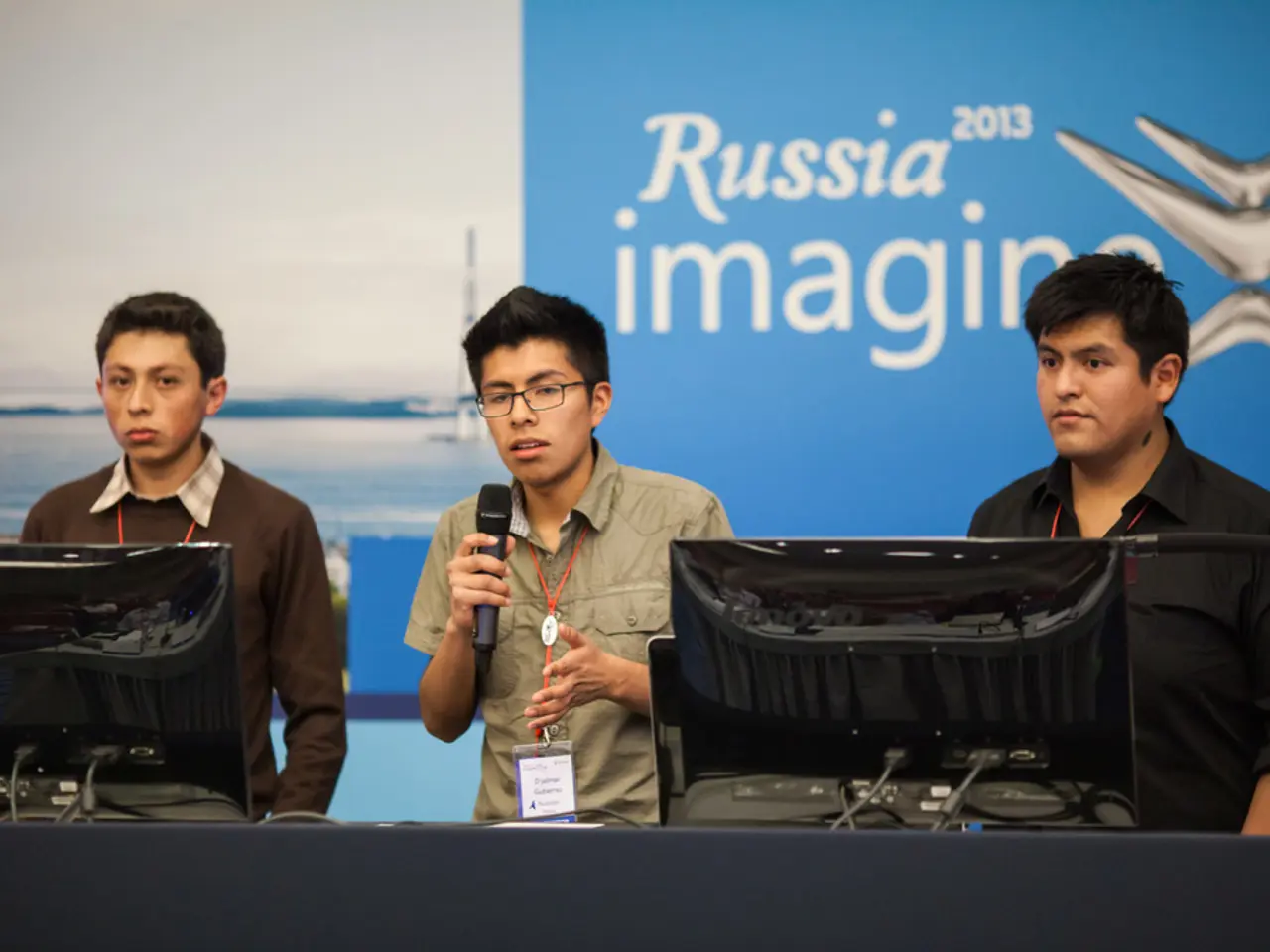Social Dems Face internal turmoil over Russia policy before conference
- *
SPD Seeks Explanation of Its Russia Policy Prior to the Party Convention - SPD urges clarity on Russia policy before Party Congress: Heil's demand
Tensions within Germany's Social Democratic Party (SPD) over Russia policy are running high, especially after the party's recent electoral losses and the emergence of a manifesto proposing a change in approach towards Moscow. The SPD is currently in a state of self-examination, as some members advocate for renewed dialogue with Russia while others support the government's current hardline position towards Ukraine.
- Hubertus Heil (Federal Minister of Labor and Social Affairs) has spoken out against a recently circulated manifesto calling for negotiations with Russia and questioning the deployment of new US medium-range missiles in Germany. He said, "I strongly disagree with the content of the manifesto. While it's important to engage with difficult regimes worldwide, we must not naively confront Putin's aggressive imperialism."
Heil was quick to add, "I would never attribute malicious intentions to the authors of the manifesto. I respect many of the signatories within the SPD."
- Tim Kluessendorf, an official candidate for SPD general secretary at the conference, has shown a general understanding for the criticism raised in the manifesto. "Public diplomatic approaches need more emphasis," he stated in a conversation with RND newspapers. However, Kluessendorf firmly disagrees with the manifesto's attempt to justify Russia's actions, "Putin is the aggressor and has shown no willingness to engage in dialogue so far."
- Dirk Wiese, SPD parliamentary business manager, anticipates the paper on foreign policy to play a role again during the party conference beginning Friday. Speaking in Berlin, Wiese expressed a 'certain calm' about the situation, stating, "Some discussions simply have to be endured."
The Russian President, Vladimir Putin, is central to the ongoing disputes within the SPD. Some party members are advocating for renewed talks with Moscow, while others maintain the current government's stance of supporting Ukraine and maintaining a firm line against Russian expansion.
- SPD
- Hubertus Heil
- Russia policy
- Russia
- Federal party conference
- Vladimir Putin
- Tim Kluessendorf
In a period of introspection and disarray, the SPD is grappling with competing visions for its future security and foreign policy, particularly regarding Russia and Ukraine. This internal debate gets amplified by the recently released manifesto and the need to address the party's electoral difficulties.
Christian Schmidt of the Christian Social Union (CSU) has publicly criticized the manifesto, calling it "dangerous and detached from reality," warning that it could undermine European security by legitimizing Russian aggression and weakening support for Ukraine. While the SPD leadership, including Chancellor Olaf Scholz, has distanced itself from the manifesto's calls for negotiation and missile withdrawal, there is a significant minority within the party advocating for a gentler approach involving renewed dialogue with Russia.
Enrichment Data:
- The ongoing internal debates within the SPD are a result of recent electoral setbacks and the emergence of a manifesto advocating a more accommodating stance towards Russia.
- The manifesto calls for negotiations with Russia and questions the deployment of new US medium-range missiles in Germany. It has been described as advocating a more accommodating stance towards Russia, including an end to what its authors see as escalatory policies.
- Critics of the manifesto argue that such an approach would contradict the official German government position of assisting Ukraine and maintaining a firm line against Russian expansion.
- Dirk Wiese and Hubertus Heil have not issued explicit personal statements rejecting the manifesto in the available sources. However, the broader SPD leadership, including Chancellor Olaf Scholz, has distanced itself from the manifesto's calls for negotiation and missile withdrawal. There is no prominent public statement directly attributed to Tim Kluessendorf in the recent coverage of this issue.
- Amidst the SPD's self-examination ahead of their Federal Party conference, internal discord over Russia policy continues, with some advocating for renewed dialogue with Russia while others maintain the hardline position towards Ukraine, particularly regarding Vladimir Putin's actions.
- In the wake of electoral losses and the emergence of a manifesto proposing a more accommodating stance towards Russia, the SPD faces a contentious period of introspection and debate over their foreign policy and legislative agendas, which includes the discussion of Russia and the need to address their electoral difficulties.







